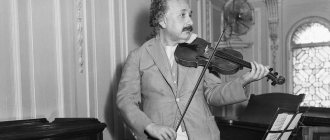Communicating with the people around us, it is easy to notice that we are all different. This is an obvious truth. However, while remaining unique individuals with their own individual characteristics, people may have similar traits, qualities, and characteristics. Even ancient philosophers made attempts to classify representatives of the human community, uniting them into groups according to some common characteristics.
But it is almost impossible to create a comprehensive classification, since people can be grouped according to different criteria: characteristics of emotionality, social status, level of intelligence, interests, goals, etc. In the 20th century, with the development of psychological science, the classification of types of people began to focus on characteristics of their inner world, that is, the psyche, and the concept of “psychotype” appeared. Currently, there are many psychological typologies, and we will introduce you only to the most popular ones.
Classification of people by temperament
Few people know that the founder of the definition of personality types is the famous ancient Greek physician and philosopher Hippocrates. Being a leading doctor of his time, he conducted many interesting experiments.
Since Hippocrates was a supporter of materialism, he tried to find a connection between temperament and the amount of one of 4 fluids in the body: lymph, blood, yellow and black bile.
As a result, he introduced 4 main types of temperament:
- choleric;
- phlegmatic person;
- melancholic;
- sanguine
According to Hippocrates, yellow bile predominated in the body of choleric people, black bile - of melancholic people, lymph - of phlegmatic people, and blood - of sanguine people.
For obvious reasons, modern medicine cannot take seriously these conclusions of the famous ancient Greek doctor, who did not leave behind any explanation as to how he managed to identify such patterns.
An interesting fact is that Hippocrates compared a person’s character with his physical health. He believed that in our body thoughts, the state of organs and emotions are inextricably linked.
In modern medicine and psychology there is such a direction as psychosomatics. Psychosomatics (“psyche” - soul and “soma” - body) studies the influence of psychological factors on the occurrence and course of somatic (bodily) diseases. By approaching this issue correctly, many people have managed to get rid of various ailments associated with psychosomatics.
The main disadvantages of sanguine people:
- Inconsistency in actions and deeds. A sanguine person often gets down to business, but rarely completes it; such people cannot work in monotonous work;
- Sanguine people often overestimate themselves and their capabilities;
- People with a similar temperament have mood swings, it is difficult for them to develop strong-willed qualities;
Psychologists recommend that sanguine people work more on their willpower. Pay attention to little things, learn to rely on your own strengths.
Temperament types
Let's briefly look at each type of temperament and give it the corresponding characteristics.
Melancholic people
Of the 4 personality types, melancholic people are the “weakest”. They have weakly expressed inhibitory and excitatory processes, which makes them very sensitive.
Even something insignificant can cause melancholic people to worry. They are often depressed and more prone to depression. Among them you can often find neurasthenics who carefully hide their emotions.
For this reason, melancholic people may develop mental and nervous disorders, which in turn can cause diseases of the stomach, cardiovascular system, and liver.
Cholerics
Cholerics by nature are the complete opposite of melancholics. They are distinguished by an unbalanced and firm character.
An interesting fact is that people with this personality type are more likely than others to suffer from liver and gall bladder diseases. It is difficult for them to control their emotions, as a result of which they are characterized by irritability, outbursts of anger and often rage.
As a rule, choleric people have difficulty getting along with people. They are very impulsive, fussy and lively in conversations with their interlocutor.
Sanguines
Sanguine people are the most “lively” personality type. They are strong, balanced, active and often take the initiative. As a rule, sanguine people are inclined to work, as a result of which they are afraid of not being able to do something or making a mistake.
They are demanding not only of themselves, but also of others, which sometimes leads them to stress or depression.
People with this personality type most often suffer from diseases of the cardiovascular system. They are also susceptible to strokes and heart attacks.
Phlegmatic people
Phlegmatic people belong to the “calm” personality type. They are distinguished by prudence and balance. It is very difficult to piss them off.
This type of personality is not difficult to identify in a crowd of people: in the process of any unrest or general panic, they remain calm and try to stay away from the events taking place.
Phlegmatic people prefer not to get upset over trifles, trying not to take everything to heart. Despite this, they are the ones who suffer from stomach ulcers more often than other types.
Read more about temperament types here.
Disadvantages of a choleric person
The main disadvantages of a choleric person include:
- Excessive haste in your actions and actions;
- Cholerics are not patient;
- Excessive impulsiveness and imbalance;
- Excessive straightforwardness and harshness when communicating with other people;
- Aggression that occurs periodically;
Psychologists recommend that choleric people learn to work on themselves. This work should include the ability to control oneself in any conflict situations. Often choleric people make rash decisions and literally throw themselves into the pool headlong. The ten-second tactic suits them, which consists of mentally counting to ten before making an important decision or expressing an opinion.
Social personality types
In sociology, personality types are related to historical, economic, social and cultural events that directly influence them.
Here, as in psychology, you can find a variety of personality types. According to Max Werber, people must be divided according to their degree of rationality.
Taking this factor into account, there are two personality types:
- rationalists;
- irrationalists.
In turn, Erich Fromm suggests dividing people into 3 types:
- receptive (passive) – ready to obey others;
- exploitative - those who take advantage of other people's labor;
- accumulators – prone to market relations.
Sociology divides people into the following types of personalities:
- traditionalists;
- realists;
- idealists;
- hedonists;
- frustrated type.
Traditionalists tend to be orderly and disciplined. They try to live by the law and do not strive for self-improvement.
In contrast to them, realists, on the contrary, try to realize themselves in life. In addition, they try to keep their emotions under control and not fall into hysterics.
Idealists include those who strive for independence and fight against established rules.
Hedonists are not at all interested in what is happening in society. Most of all, they want to receive satisfaction from life, which manifests itself in material values and sensual pleasures.
A frustrated personality type is characterized by low self-esteem. They feel superfluous in society, as a result of which such people often become outcasts or homeless.
Sanguine person - characteristics: pros and cons of sanguine person
Sanguine people are cheerful and incorrigible optimists. These people cannot sit still, they need constant movement.
Sanguine people are very active, and this activity manifests itself in literally all areas of a sanguine person’s life. They love to be the center of attention, but unlike choleric people, they do not have the habits of dictators.
The peculiarity of the psychological behavior of sanguine people is characterized by a high degree of excitability.
Sanguine people know how to get along with people and find a compromise in any difficult life situations. They are resourceful and enterprising. A sanguine person can literally lead a crowd, because these people are excellent speakers who know how to convince others that they are right.
Hyperactivity does not give a sanguine person the right to sit still. He tries to make his life brighter and more interesting. Such people love to travel, discovering more and more new facets of the world around them. Many artists, musicians, and actors are sanguine.
Personality types in socionics
In the 1970s, based on Jung's typology and Kempinski's theory of information metabolism, socionics arose - a new concept of personality types and the relationships between them.
In socionics, personality types are considered depending on how the following characteristics are combined in an individual:
- introversion and extroversion;
- logic and ethics;
- rationality and irrationality;
- sensory and intuition.
Let's briefly consider socionic personality types.
INTROVERTS – the driving force is self-interest. These are closed individuals with communication problems, completely focused on their inner world. Characterized by an inward orientation of life.
EXTROVERTS – the driving force is external factors. Extroverts are open and ready to communicate people who are not always capable of independence. Characterized by an outward direction of life. Read more about extroverts and introverts here.
LOGICIANS rely on logical thinking, which helps them arrive at the truth.
ETHICISTS adhere to traditional moral norms and concepts. People with this personality type are keenly interested in art and creativity.
RATIONALISTS put reason in the first place with principles and traditions established in society.
IRRATIONALISTS try to improve themselves and constantly strive for innovation. They are characterized by unconventional thinking and creativity.
SENSORS try to process information not in time, but in space. They consider it important to experience sensations. They are interested in art and the beauty of nature. Sensors pay attention to events occurring at the present time, but they care little about the future.
INTUITS prefer to get acquainted with different information in accordance with time, and only then watch how events will develop. People of this type are absent-minded and do not strive for improvement.
What is a psychotype
Any person represents a unity of the general and the individual. Recognizing the right of everyone to be a bright and unique personality, we must understand that the laws by which the psyche works are common to everyone, which means there are many similarities between people. This allows psychologists to draw general conclusions and develop effective and applicable methods of psychotherapy and correction to all individuals.
But along with general and individual traits, there are also typical ones, that is, they allow people to be united into groups (types) based on some common characteristics. In this case, we will talk about psychological characteristics and, accordingly, psychotypes. A psychotype is a complex of mental characteristics that make up a generalized model of human behavior and his reactions to external stimuli. These patterns are characteristic of many people, which allows them to be grouped together.
Why are such classifications needed? Psychologists need them to use different approaches to working with clients according to their types. However, too general methods and advice are not always effective, and it takes a lot of time to understand the individual “cockroaches” of each person. It’s easier to start from typological features and start analyzing individual problems and choosing work methods from them.
Here's an example. According to the characteristics of contacts with the outside world, all people can be divided into two types: extroverts and introverts:
- Extroverts are open to the world and other people and draw their energy from outside themselves.
- Introverts are closed in their inner world; they have difficulty building relationships with others and focus on their own resources.
It is clear that in order to develop the correct strategy for communication and interaction with a client, a psychologist needs to know what type he is.
It is also useful for ordinary people to know about their own psychotype. Such information allows you to interact with the world more effectively and avoid many mistakes. That is, knowledge of psychotypes is a useful thing, and special tests have been developed to determine them.
True, there is one problem: there are so many different typologies, classifications and their descriptions that it is not easy for even a psychologist to understand them. Therefore, I will introduce you only to the most popular ones.
Disadvantages of melancholic people:
- Emotional instability, indecisiveness, lack of self-confidence and strength;
- Difficulty with the perception of the surrounding world, vulnerability, pessimism;
- Tendency to depressive mental states;
Psychologists strongly recommend that melancholic people not close themselves off. Try to explore the world, travel, communicate with new people. You can try mentoring to improve your personal self-esteem. Engage in active sports, dancing, any creativity. A melancholic person needs to be close to loved ones and friends, and not withdraw into himself and his feelings.
Read more: How to determine a person’s temperament by his behavior
Take a temperament and extroversion/introversion test
Source of pictures-tables: psi-school.ru
Article rating
Leonhard's typology
German psychiatrist Karl Leonhard identified 6 types of people in psychology according to temperament.
- Hyperthymic temperament: elevated mood, thirst for activity, disorganization, dislike of strict boundaries and restrictions.
- Dysthymic: depressed mood predominates. Tends to be solitary, slow. Stands out for his serious ethical position.
- Cyclothymic - characterized by periodic changes in mood: when elevated, it develops vigorous activity, when decreased, performance drops sharply.
- Anxious and suspicious - fearful, efficient, worried about failures for a long time.
- Emotive - soft-hearted, compassionate type.
- Affectively - exalted temperament: characterized by a wide range and severity of emotional reactions. He easily becomes delighted for minor reasons, and just as easily falls into despair at the slightest failure.
Leonhard also considered 4 types of people based on the psychology of accentuation. Accentuation of character is the expression of certain psychological traits, as a result of which a person becomes vulnerable to certain psychogenic influences. When accentuation is pronounced, the same type of difficulties and conflicts with others arise. In advanced cases, psychology considers these types of people as a deviation from the norm - psychopathy, which prevents them from adapting to society.
If a person has severe psychological problems, for example, fears, phobias, panic attacks, addiction, etc., he needs the help of a qualified specialist.
The main features of accentuated personalities:
- demonstrative type - a tendency towards posing, artistry, the desire to rise in the eyes of others, which leads to deceit and embellishment of information about oneself;
- pedantic - rigidity, slowness, indecisiveness, accuracy;
- stuck - resentment, a tendency to “get stuck” for a long time on certain thoughts and feelings, especially when it comes to hurt pride, suspicion, jealousy;
- excitable type - impetuosity, impulsiveness, intolerance, imperviousness to criticism.
On the Internet you can find many questionnaires to identify personality accentuation and temperament type. For example, Lichko test, Shmishek test, Eysenck questionnaire.
Constitutional psychology
There is a theory about the connection between the type of temperament and bodily manifestations. German psychiatrist Ernst Kremcher and American psychologist William Sheldon described 3 body types and the corresponding types of people according to psychology:
- Asthenic (ectomorph) with narrow bones, undeveloped muscles and an almost complete absence of subcutaneous fat layer. The corresponding type of temperament is cerebrotonic. Prefers thinking to direct action, and is constrained in social contacts. When problems arise, he withdraws into himself. Predisposition to schizophrenia.
- Athletic (mesomorph) - the owner of a developed skeleton and muscles. Type of psychology - somatonic - purposeful, persistent, energetic, risk-taking, somewhat tough in communication. When faced with a problematic situation, he resorts to active decisive actions in search of a solution. Predisposed to epilepsy.
- Picnic (endomorph) with a tendency to obesity and accumulation of fat mainly in the torso. Visceronic temperament - good-natured, open, social, inclined to seek physical comfort and enjoy food. In critical situations, he tends to seek help from those around him. Predisposed to depression.
Jung's typology
The basis for dividing people into psychological types is the tendency to predominantly direct vital energy (libido) outward to the situation or partners (extroversion) or to refrain from spending energy and influencing oneself from the outside (introversion). Hence the openness and sociability of pronounced extroverted types and the isolation and tendency to solitude of introverted psychotypes.
Both types of behavior are biologically based. In the animal world there are also two ways of adapting to the environment. The first, “extroverted” - the desire for unlimited reproduction in combination with the weak functioning of defense mechanisms (as in rats, rabbits, lice). The second, “introverted” - a small number of offspring with strong protective mechanisms (in most large mammals). Like animals, what an extrovert achieves through mass contacts with the outside world, an introvert achieves through a maximally independent position.
Carl Jung first introduced the concepts of extraversion and introversion as the main types of ego orientation. And later he supplemented his psychological typology with a description of four basic mental functions:
- thinking (logic);
- feeling (aesthetic judgments and ethical values);
- sensation (perception through the senses);
- intuition (unconscious perception).
Each of the basic psychological functions can be directed both outward and inward - the extraversion-introversion criterion. According to which of the functions is more developed (leading), the individual can be classified as a thinking, feeling, sensing or intuitive extrovert/introvert. The opposite of the predominant function is repressed into the unconscious and gives rise to interesting effects. For example, the thinking type does not like excessive displays of emotions, shouting, or pathos. But the “thinker” will receive the greatest pleasure from communicating with the emotional feeling type.










